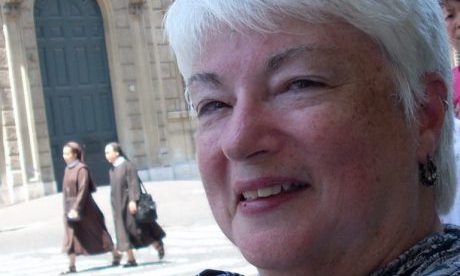Amid the controversy surrounding Pope Francis’s recent apostolic exhortation, Amoris Laetitia (The Joy of Love), one extraordinary section has been all but overlooked.
In chapter 4, “Love in Marriage,” the Holy Father offers a moving exegesis of that popular wedding reading, St. Paul’s ode to love from 2 Corinthians.
It’s about more than marriage, though; it’s mercy in action.
The love that St. Paul celebrates as the greatest and most enduring virtue is intended to be the pattern for every human relationship.
That’s why Pope Francis’s reflections (in paragraphs 112-113 of Amoris Laetitia) on the phrase “[Love] bears all things” blew me away.
First, Paul says that love “bears all things” (panta stégei). This is about more than simply putting up with evil; it has to do with the use of the tongue. The verb can mean “holding one’s peace” about what may be wrong with another person. … In seeking to uphold God’s law we must never forget this specific requirement of love. (AL #112, emphasis original)
This week’s Jubilee Year suggestion for practicing mercy (#17) is, then, not just an optional nice thing to do but a “specific requirement of love”: Hold. Your. Tongue.
Far more often than I want to admit, the merciful thing, the loving thing to do is to hush.
It’s not a new notion. The Letter of James pulls no punches about the destructive power of unmerciful speech among the first Christians.
Consider how small a fire can set a huge forest ablaze. The tongue is also a fire. It exists among our members as a world of malice, defiling the whole body and setting the entire course of our lives on fire, itself set on fire by Gehenna. (James 3:5-6)
Today we would amend James’s description to include the typing fingers and the texting thumbs, equally susceptible to Hell’s arson and equally setting lives on fire with malice.
Here, then, are just of few of the many situations in which I need to practice mercy by holding my tongue — and atoning for the times I have not. Continue reading
- Joanne McPortland is a freelance writer who has a special interest in the interplay between Catholicism and culture.
